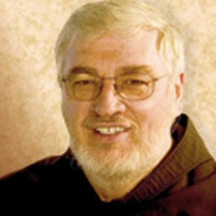
Readings:
Reading 1: Isaiah 63:16B-17, 19B; 64:2-7
Responsorial Psalm: Psalm 80:2-3, 15-16, 18-19
Reading 2: 1 Corinthians 1:3-9
Gospel: Mark 13:33-37
“Sometimes, I feel like a motherless child.” The title of Negro Spiritual captures many Americans’ disappointment and disillusionment, who hoped that the national election earlier this month would bring an end to the mean-spirited tone of political rhetoric and the partisan quarreling that has characterized the national government. Though one presidential candidate prevailed, it was by the thinnest of margins. The nation, its political institutions, and, most importantly, its people remain sharply divided.
“Sometimes I feel like a motherless child” was composed toward the end of the era of slavery in the United States. The “new birth of freedom” promised by Lincoln miscarried. While white Americans, who fought one another with great ferocity for four years, embarked on a path toward reconciliation, the ex-slaves were left behind to fend for themselves. They could do little else but sing of their pain and hopelessness, comparing them to those of a child torn from its parents.
One hundred seventy-five years later, African-Americans still must face the bitter heritage of slavery: racism. As toxic as the nation’s political atmosphere is, racism makes a mockery of the nation’s ideal of “equal justice under law.” But there is more—armed white supremacists plot to kidnap and execute elected officials. We are closer to an environmental disaster than we have ever been. Then there is the covid pandemic with the economic collapse that it has brought in its wake. As the pandemic worsens, thousands of people may lose their health insurance. American soldiers are still killing and being killed in Afghanistan. The treatment of immigrants continues to be a national disgrace.
The situation in the Church is not much better. The number of Catholics who no longer practice their faith is growing. Vocations to the priesthood and religious life remain low. Once vibrant parishes are being consolidated or even closed because of shrinking congregations and the diminishing number of parochial clergy. The bishops of the U.S. still have not regained their moral voice lost because of their mishandling of clerical sex abuse of children.
The prophet whose words appear in the first lesson, wrote at a difficult time in the life of the Jewish people who lived in what remained of their ancestral homeland. A glorious restoration, as promised in Isaiah 40-55, never panned out, leading to disappointment and disillusionment. The people faced a bleak economic future because of successive crop failures and high taxation. They were no longer in control of their political destiny, having been absorbed into the Persian empire. The people’s religious life was at a low ebb. The prophet asked God to reverse this situation: Oh, that you would rend the heavens and come down. The prophet was confident that the future was in God’s hands and that God would act: No ear has ever heard, no eye ever seen, any God but you doing such deeds for those who wait . . . .
“Sometimes, I feel like a motherless child.” The keyword is sometimes. Sometimes we do have the energy to act. We must not allow feelings of hopelessness morph into inertia. No ear has ever heard, no eye ever seen, any God but you doing such deeds for those who wait for God. We must not be passive as we wait for Jesus, who will return to reveal the extent of his victory over sin and death. We need to take action to bring peace to our world, justice to our country, and holiness to our Church. Of course, this is an enormous task. What can one person do? No one person can do everything, but we all can do something — something to help the poor, something to welcome the immigrant, something to make our parish a better Christian community, something to make our world a safe place for children, something to improve the environment… We do not have to worry that our individual efforts are insignificant or that they are a waste of time and effort. Like the prophet, we call upon God: Return for the sake of your servants. . . Oh, that you would rend the heavens and come down. We believe that when Jesus does return, he will take our feeble efforts, join them to his own, and then transform this world of ours completely and definitively before presenting that new world to God, a world of justice, peace, and love.
Yes, we wait for the Lord’s Second Coming. But our waiting has to be active, productive waiting, faith-filled waiting, a prayerful waiting. It is not a sit-on-your-hands waiting but a let’s-get-to-work waiting. No one can do everything, but we all can do something. If we do something to make this a better Church, a better country, a better world, we will be worthy of the promise the prophet speaks in the name of God: No ear has ever heard, no eye ever seen, any God but you, doing such deeds for those who wait for God.
Rev. Leslie Hoppe, OFM
Carroll Stuhlmueller Distinguished Professor Emeritus of Old Testament Studies